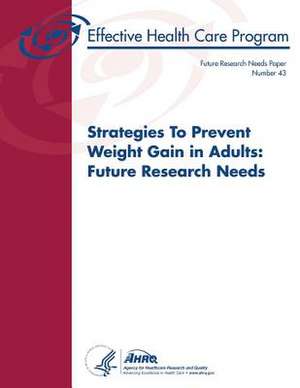Strategies to Prevent Weight Gain in Adults
Autor U. S. Department of Heal Human Services, Agency for Healthcare Resea And Qualityen Limba Engleză Paperback
Preț: 72.65 lei
Preț vechi: 76.47 lei
-5% Nou
Puncte Express: 109
Preț estimativ în valută:
13.90€ • 14.55$ • 11.50£
13.90€ • 14.55$ • 11.50£
Carte indisponibilă temporar
Doresc să fiu notificat când acest titlu va fi disponibil:
Se trimite...
Preluare comenzi: 021 569.72.76
Specificații
ISBN-13: 9781492789604
ISBN-10: 1492789607
Pagini: 40
Dimensiuni: 216 x 280 x 2 mm
Greutate: 0.12 kg
Editura: CREATESPACE
ISBN-10: 1492789607
Pagini: 40
Dimensiuni: 216 x 280 x 2 mm
Greutate: 0.12 kg
Editura: CREATESPACE
